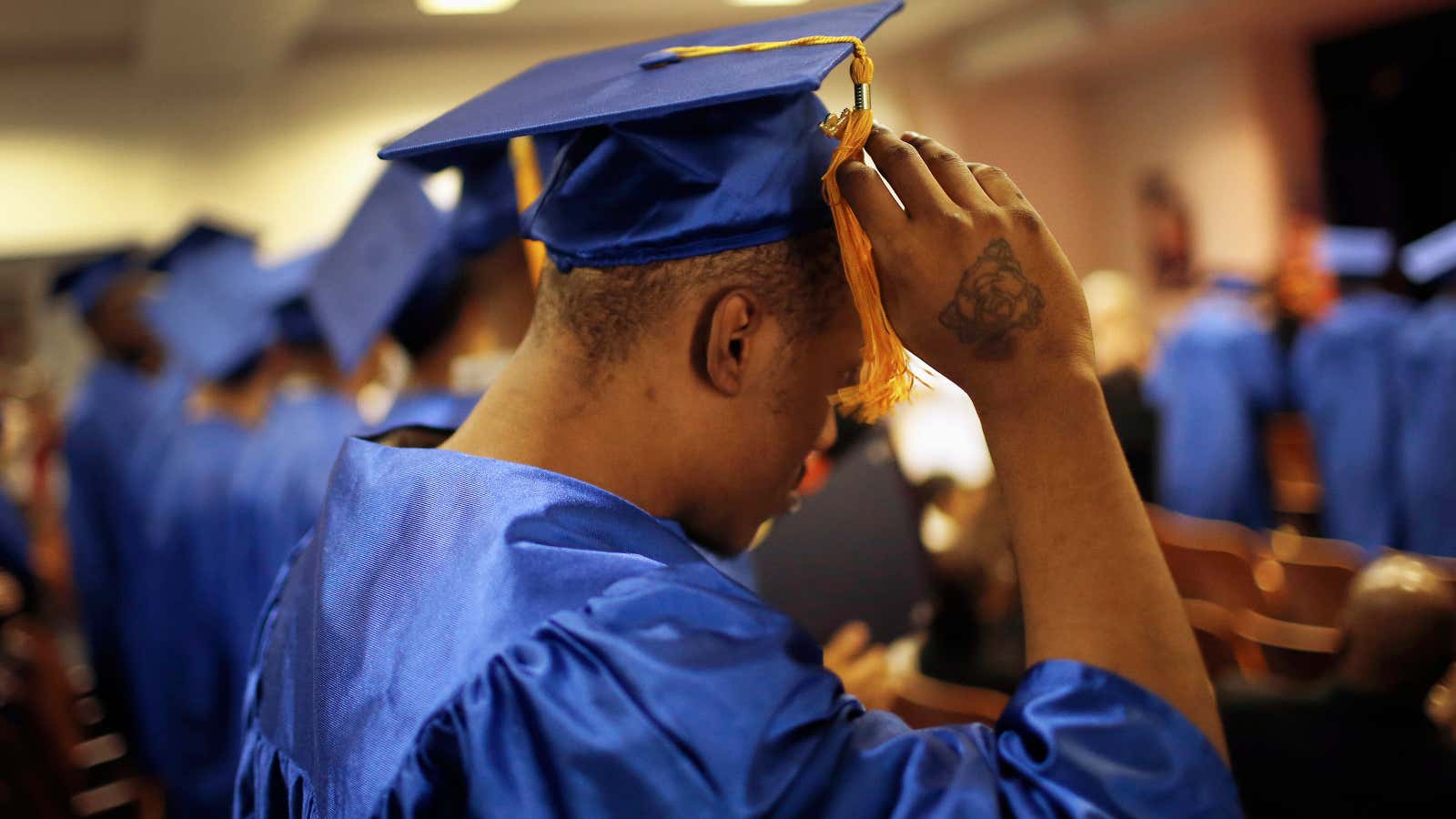Exactly how much does a student’s performance in high school affect his or her later chances of success?
According to a new report this week from GradNation, a collaboration between hundreds of educational organizations seeking to boost the US’s high school graduation rate, the answer is: exponentially.
Researchers from education consultancy Civic Enterprises and Johns Hopkins University’s School of Education found that while 76% of high schoolers with an A average go on to earn a bachelor’s degree or higher within 10 years, that number drops to 50% for B-average students—and further plummets to 27% for C-average students, and 12% for D-average students.
For high schoolers with an F average, the figure is a mere 3%.
These huge discrepancies, the researchers note, are “worrisome barriers” to future generations of students because of the increasing importance of a bachelor’s degree in entering the workforce. Of all the factors contributing to America’s colossal achievement gap—geography, access to resources, poverty, and race among them—one of the starkest is high-school education.
By 2020, most jobs in the US will require a postsecondary degree, meaning that today’s 1st-through-10th-graders are the ones with “the most to lose.” And almost all jobs are going to graduates.
High schools like to say colleges are the ones who should make sure their applicants and incoming students are sufficiently prepared to earn degrees; colleges, in turn, tend to shove that responsibility onto parents and high schools. What’s clear is that there’s something critically missing right now from the middle.
